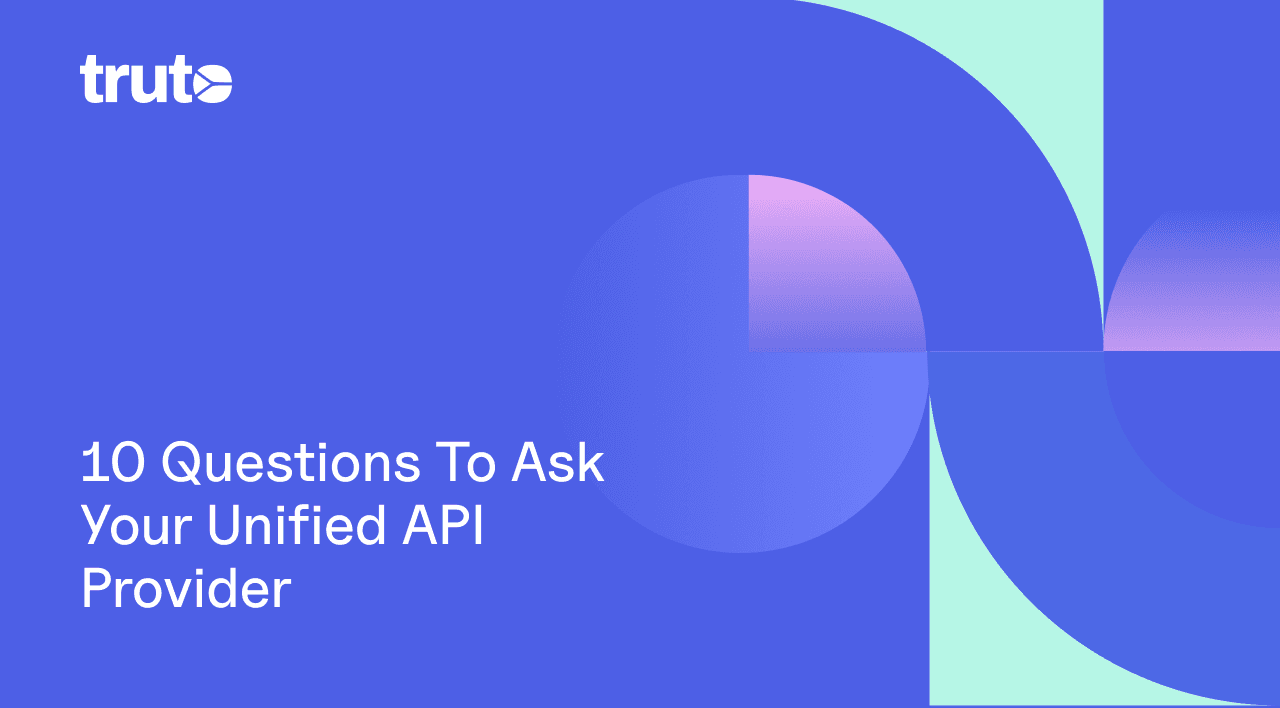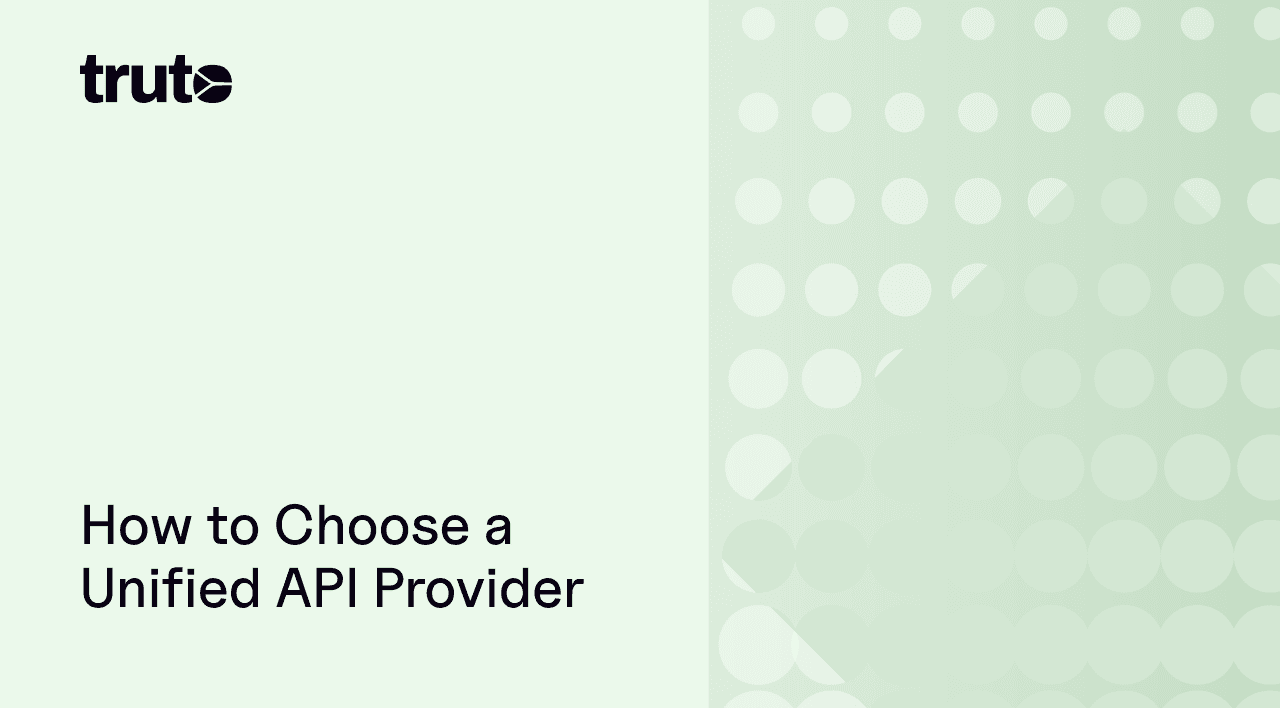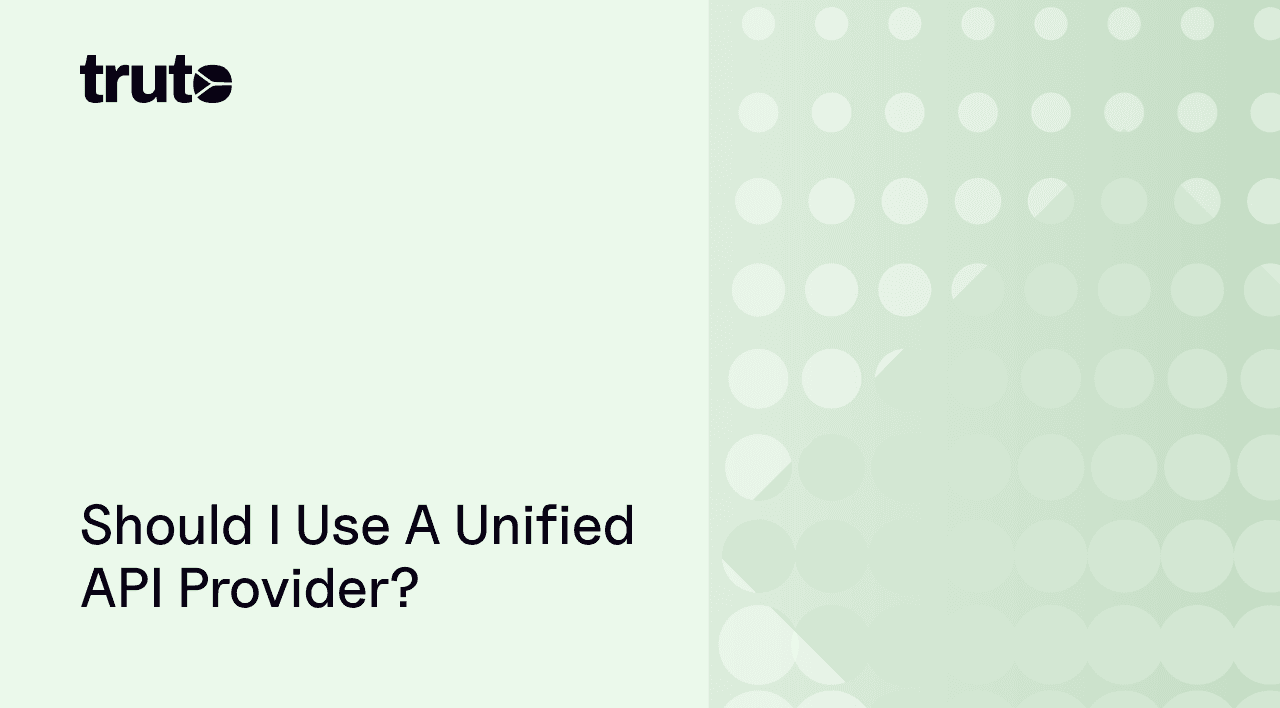10 Questions to ask your unified API provider
Ensure long-term stability for your integrations by asking a unified API provider these 10 essential questions about scaling, pricing, and product roadmaps.

Integrations will form a core part of your product offering and its customer-facing. It's paramount that it just works 100% of the time. Once you have decided to use a unified API provider and shortlisted some, use the questions below to ensure you don't end up firefighting one day.
Questions to ask your Unified API provider
- What is your plan for the next 1,2 and 3 years?
Look for stability and clarity in thinking.
2. What is your product roadmap?
Look for features that will add value as time goes by. You don't want to use many SaaS products to get integrations done.
3. What's your plan for adding to your integrations catalogue?
Look for steady building activity on integrations. Make sure they will continue to support newer integrations. Better yet, ask them for custom integrations.
4. Who are your current customers?
Look for big well-known names here.
5. How do you plan to scale the tech?
Identify any gaps and make sure the tech stack is built for scale.
6. What happens if you choose to shut down the company?
Look for open-source solutions or solutions which have open-source elements in them. There are other solutions to alleviate this fear as well such as sharing the code base and self-hosted solutions.
7. Is a price increase on the horizon?
Since will be a fundamental part of your product offering, you want to make sure it doesn't become a burden later on. Make sure you have a long-term contract or a commitment to pricing caps.
8. Do you do multi-year contracts?
Any vendor will appreciate it when you ask them this question. The benefit you want to look for here for your team is a good price and/or services geared for you.
9. Will there be any issues when we scale?
This will bring out any gaps in the tech stack that may have been missed earlier.
10. How can we switch to another vendor?
If you are speaking with the right vendor, they will love this question and happily suggest how best to prepare for this event. Solutions you want to look for - help with migration, architecture design, and switching timelines.
If you are looking for a comprehensive guide with parameters to get you started on choosing a unified API provider, read this post - How to choose a unified API provider
FAQ
- What should I ask a unified API provider about their roadmap?
- Ask about their plans for the next three years and their strategy for adding new integrations to ensure the platform evolves with your needs and supports custom requests.
- What happens if a unified API provider company shuts down?
- Look for providers with open-source elements, self-hosted options, or code-sharing agreements to ensure you can maintain your integrations even if the vendor ceases operations.
- How can I prepare for switching to a different unified API vendor?
- Ask prospective vendors how they support migrations, architecture design, and switching timelines to ensure you are not locked into a single service and can transition if needed.




